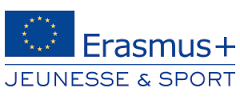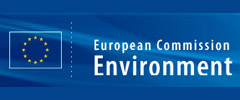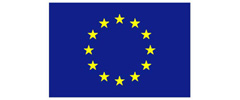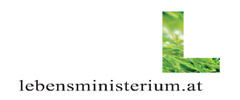Symposium WECF: Substitution is good for business, for people and for the environment
WECF co-organised on April 1 symposium on substitution (replacement) of hazardous chemicals with Dutch ministry of environment and employers union VNO NCW
27.03.2009 |Nicole van Gemert
Women in Europe for a Common Future (WECF) co-organised a mini-symposium with the Dutch Ministry of the Environment in cooperation with employers union VNO/NCW and the Chemical industry. The issue was substitution (replacement) of hazardous chemicals. The symposium was held at the Hotel Mercure in The Hague on April 1.
Within the new European Chemicals Regulation - REACH - a list of chemicals used for authentication and possible substitutes is being put together. In addition to the still short list of official European Chemical Agency (ECHA), there are alternative lists, including the "Substitute It Now" list, or the "SIN List". This list is compiled by the Swedish CHEMSEC, together with several environmental organizations, including WECF. The European Trade Union Movement also has a list of substances of very high concern that needs to and can be replaced.
During the afternoon, a number of international companies such as Sara Lee, Fred Butler, Sony Ericsson and Unilever presented concrete examples on how to succeed in the replacement of dangerous substances, how they use the alternative lists and which benefits they see in substitution. The discussion focussed on how more companies can get actively engaged with substitution, and which tools, support and incentives are needed from the industry, Civil Society, consumers and government.
- Gavin ten Tuscher, Health Care Without Harm, spoke about DEHP in PVC and Health effects on babies/children
- Nardono Nimpuno from ChemSec presented the SIN List and European NGO priorities
- Dirk van Well, Dutch Cefic representative from VNCI, VNO-NCW, described how difficult substitution really is, more difficult and dangerous than anything else, and that actually risk management solved any problems
- Tatiana Santos from ISTAS/ETUC presented the ETUC List
Representatives from Sara Lee, Fred Butler, Sony Ericsson and Unilever gave presentations on how their respective companies had phased out certain high-concern chemicals, and stated that they applied global standards in their chemicals policies.
The representative from Unilever however stated that their company had phased out Triclosan in Europe, however still used it in Africa due to the specific hygiene-requirements there. Sara Lee on the opposite sat in the same panel and said that they had successfully replaced Triclosan in all applications with lactic acid.
Chemicals industry was there en masse, and chlorine and bromine industry representatives such as Dolf Van Wijk, Manager Environmental Sciences at Euro Chlor and Willem Hofland from ICL-IP Europe BD, connected to Dead Sea Bromine Group,
had unfortunately great objections to NGO-lists and reiterated that their products saved lives and risk assessments all pointed to the fact that their products were safe.
Sascha Gabizon from WECF, who chaired the event, concluded that there are companies out there that do good things and need to be rewarded, reminded of the urgency of the problem and encouraged the different ministries to take chemicals into account in their public procurement policies.
Op 1 april 2009 organiseerde Women in Europe for a Common Future (WECF) een belangrijk mini symposium samen met het ministerie van VROM in samenwerking met werkgeversorganisatie VNO/NCW en de Chemische industrie. Het onderwerp is substitutie (vervanging) van gevaarlijke chemische stoffen. Het symposium vond plaats in Hotel Mercure in Den Haag op 1 april, van 13:00 tot 17:00.
Binnen de nieuwe Europese Regulering Chemische Stoffen – REACH - wordt gewerkt aan een lijst met chemische stoffen die voor authorisatie en mogelijke vervanging in aanmerking komen. Naast de nog korte officiële lijst van de European Chemical Agency (ECHA), zijn er alternatieve lijsten opgesteld, onder andere de “Substitute It Now” lijst, oftewel de “SIN list”. Deze lijst is door Chemec samengesteld met behulp van maatschappelijke organisaties, waaronder WECF. Ook de Europese vakbeweging heeft een lijst opgesteld van zeer zorgwekkende stoffen die moeten worden vervangen.
Gedurende de middag gaf een aantal internationale bedrijven concrete voorbeelden over hoe zij succes boeken bij het vervangen van gevaarlijke stoffen, waarom zij de alternatieve lijsten gebruiken en welke voordelen zij zien in het intensief bezig zijn met subsitutie. In discussie met het Nederlandse bedrijfsleven werd gekeken hoe meer bedrijven actief met substitutie bezig kunnen zijn en welke instrumenten, ondersteuning en prikkels er nodig zijn vanuit deVNO/NCW en VNCI, branche organisaties, maatschappelijke oganisaties, de consumenten en de overheid.
Het programma is hier te vinden
Related News
Human Biomonitoring for Europe
Vienna, 26 September: stakeholder forum
28.09.2018
WECF sends letter to Dutch Secretary of State concerning EU policy on EDCs
In a joint statement WECF and the EDC Free Coalition ask Dutch State Secretary Dijksma to insist on major changes at the Environmental Council meeting to protect our health and environment.
21.06.2016
Commission's EDC criteria proposal: More humans will have to be harmed before action is taken
The European Commission presented today its proposal for criteria to identify endocrine disrupting chemicals (EDCs). WECF and the EDCfree Coalition condemn strongly the decision.
15.06.2016
WECF film "How to protect children from EDCs" now available in Spanish
Pregnant women know it is important to avoid alcohol, nicotine and certain foods. However, what is less well known is that many everyday products contain pollutants that can also be harmful to your baby. WECF's film gives practical advice on how to avoid exposure to EDCs. It now also available in Spanish.
13.06.2016




































